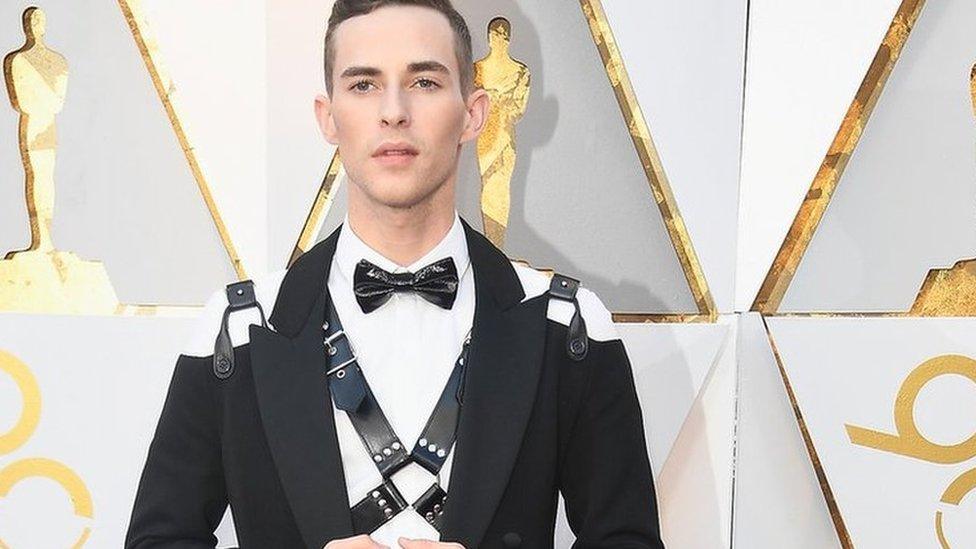Oscars 2018: The Shape of Water and Frances McDormand rule
- Published
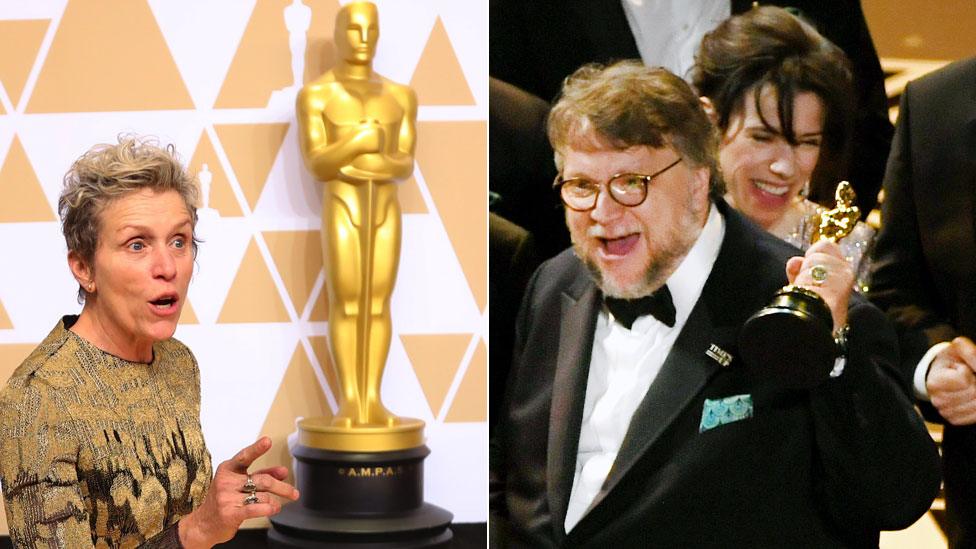
The Shape of Water, a film about a woman and an amphibious creature, has won top honours at the Oscars, external.
Frances McDormand won best actress for Three Billboards Outside Ebbing, Missouri, and persuaded every female nominee to stand with her in a night full of statements about inclusion.
Britain's Gary Oldman was named best actor for playing Winston Churchill in World War Two epic Darkest Hour.
The Shape of Water won the most Oscars with four, including best film.
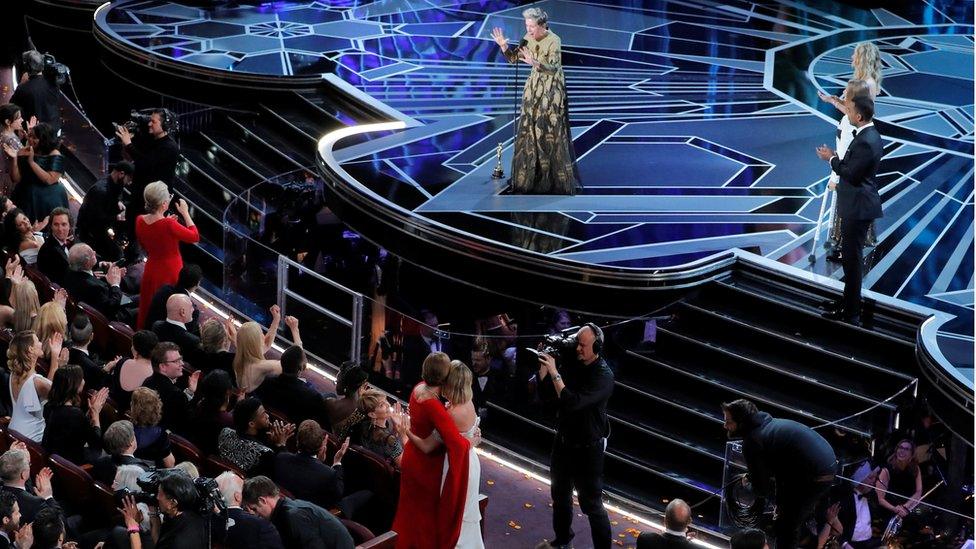
Frances McDormand called for greater support for female nominees' projects
In her acceptance speech, McDormand put her Oscar on the floor in front of her and addressed executives as the female nominees got to their feet. It was one of the most powerful and symbolic moments of the night.
"Look around, ladies and gentlemen, because we all have stories to tell and projects we need financed," she said.
"Don't talk to us about it at the parties tonight - invite us into your office in a couple of days, or you can come to ours, whatever suits you best - and we'll tell you all about them."
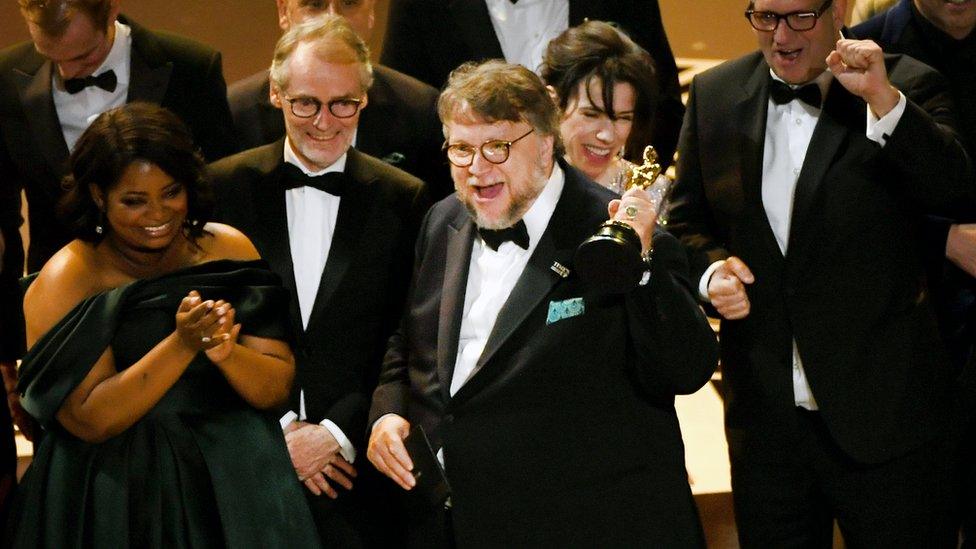
The Shape of Water director Guillermo del Toro celebrates their best picture win
Her request came amid a push for greater equality in film - especially in the wake of the Hollywood sexual harassment scandal, external.
She finished her speech with the words: "I have two words to leave you with tonight - inclusion rider."

What is an inclusion rider?
Backstage, McDormand explained that an inclusion rider is a clause that actors can put in their contracts to insist on at least 50% diversity in the film's cast and crew.
"We're not going back," she said in the winners' room.
"This whole idea of women trending? No. No trending. African Americans trending? No. No trending. It changes now, and I think the inclusion rider will have something to do with that."

McDormand received a rousing reception for her best actress win, which came for playing a vengeance-seeking mother who is let down by the authorities after her daughter is raped and murdered.
It's her second Oscar, 21 years after her first for Fargo.
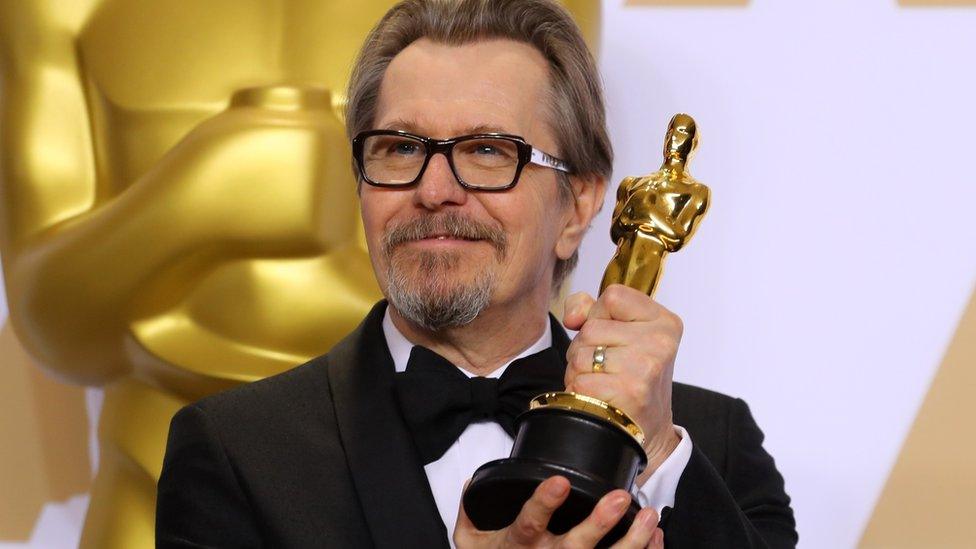
Gary Oldman: "Put the kettle on. I'm bringing Oscar home."
Jennifer Lawrence presented her with the best actress award and introduced the category by saying: "It's a new day in Hollywood, with new challenges ahead for all of us.
"But none of us will ever forget those who came before us - those who blazed a trail for my generation and those to come."
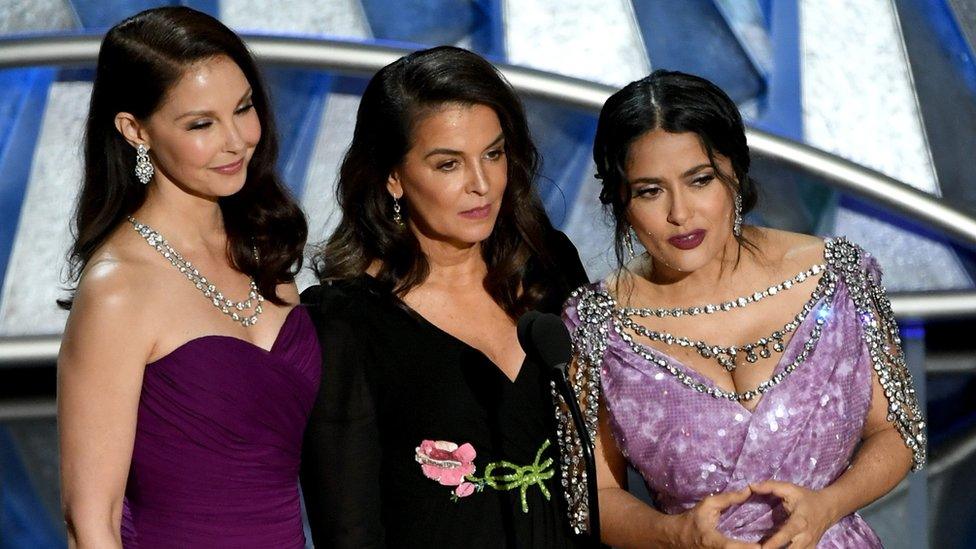
Ashley Judd, Annabella Sciorra and Salma Hayek introduced a segment marking the Time's Up campaign
The ceremony also marked the Me Too, external and Time's Up campaigns with a segment presented by actresses Ashley Judd, Salma Hayek and Annabella Sciorra, who have all accused Harvey Weinstein of sexual misconduct.
"The changes we are witnessing are being driven by the powerful sound of new voices, of different voices, of our voices, joining together in a mighty chorus that is finally saying: Time's up," Judd said.
Watch the highlights from the Oscars red carpet
Host Jimmy Kimmel addressed the issue head-on in his opening monologue, saying the downfall of Weinstein, and the reforms that had begun since, had not come soon enough.
"What happened with Harvey and what's happening all over was long overdue," he said. "We can't let bad behaviour slide any more. The world is watching us."
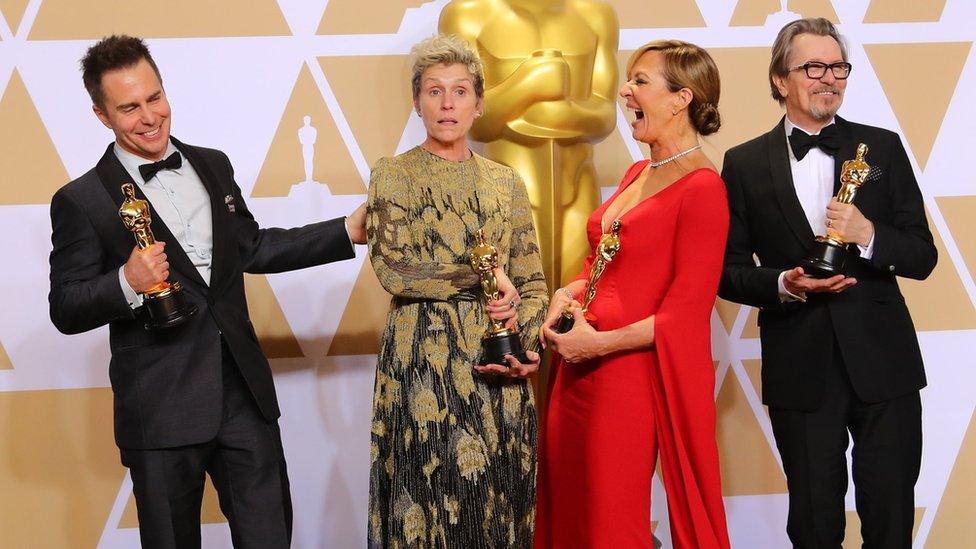
The acting winners, left-right: Sam Rockwell, Frances McDormand, Allison Janney, Gary Oldman
Accepting his first ever Oscar, Gary Oldman mentioned his 98-year-old mother, among other people, telling her: "Thank you for your love and support. Put the kettle on. I'm bringing Oscar home."
Mexico's Guillermo del Toro won best director for The Shape of Water, which stars British actress Sally Hawkins as a mute cleaning lady who has a relationship with a mysterious river-dwelling creature. It led the Oscar race with 13 nominations.

The winning film in numbers:
The Shape of Water - 4
Dunkirk - 3
Three Billboards Outside Ebbing, Missouri - 2
Darkest Hour - 2
Blade Runner 2049 - 2
Coco - 2

Hollywood legends Warren Beatty and Faye Dunaway - who announced the wrong best picture winner last year - returned to present the same award this time.
The contest had been wide open - Three Billboards had also been hotly tipped, while Get Out, a savage satire on hidden liberal racism, had a wave of late support.
Get Out won one prize on the night - best original screenplay for its writer-director Jordan Peele.
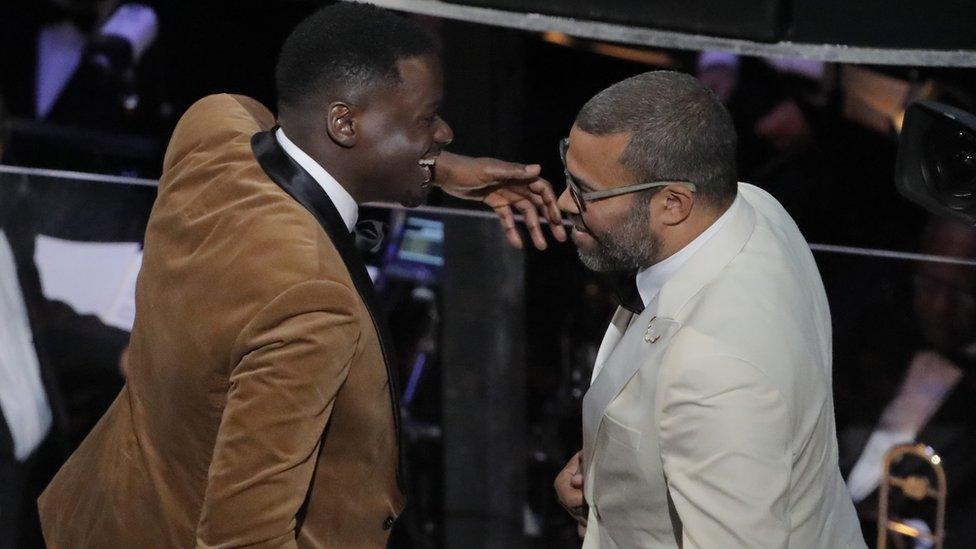
Jordan Peele was congratulated by Get Out's British star Daniel Kaluuya
He's the first black winner of the award and hailed a "renaissance" moment in Hollywood.
"I feel proud to be at the beginning of a movement where I feel like the best films in every genre are being brought to me by my fellow black directors," he said.
Christopher Nolan's Dunkirk, another action-packed war drama, won three awards in the technical categories.
Other British winners included former Hollyoaks actors Rachel Shenton and Chris Overton, who won best live action short film for The Silent Child, starring six-year-old Maisie Sly from Swindon.
Other notable winners included:
Allison Janney, hitherto best known for The West Wing, won best supporting actress for I, Tonya
Sam Rockwell was named best supporting actor for playing a racist policeman in Three Billboards
James Ivory, the director and writer of Merchant Ivory fame, won best adapted screenplay for Call Me By Your Name. At 89, he's the oldest ever Oscar winner and was born before the first Academy Awards took place
Chile's A Fantastic Woman, with an acclaimed central performance by transgender actress Daniela Vega, was named best foreign language film
Basketball superstar Kobe Bryant won best animated short for Dear Basketball - a retirement letter he wrote to the sport, which he paid veteran Disney artist Glen Keane to animate
British cinematographer Roger Deakins finally won an Oscar at the 14th attempt for Blade Runner 2049
Lady Bird and The Post were among the films that were left empty-handed.

Follow us on Facebook, external, on Twitter @BBCNewsEnts, external, or on Instagram at bbcnewsents, external. If you have a story suggestion email entertainment.news@bbc.co.uk.
- Published5 March 2018
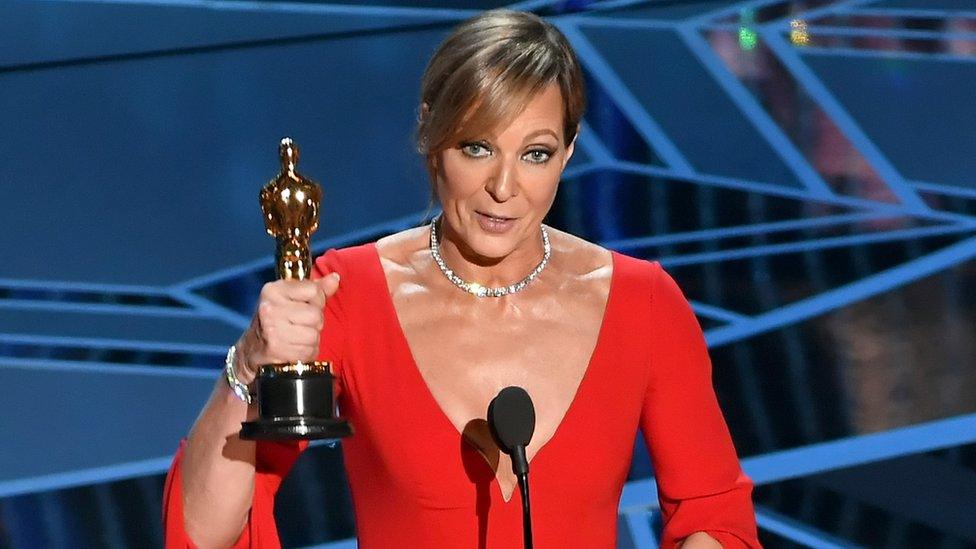
- Published2 March 2018
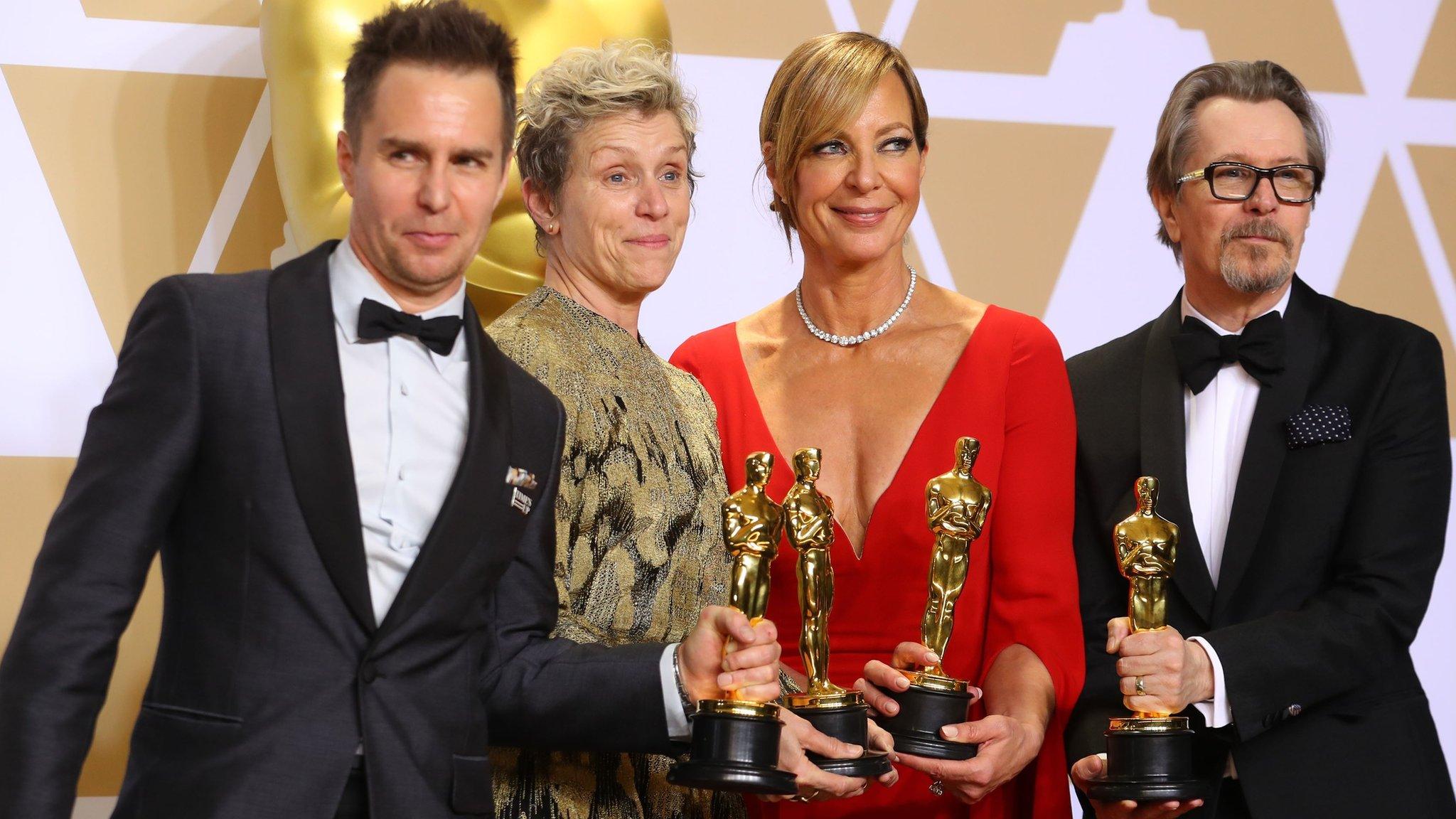
- Published5 March 2018
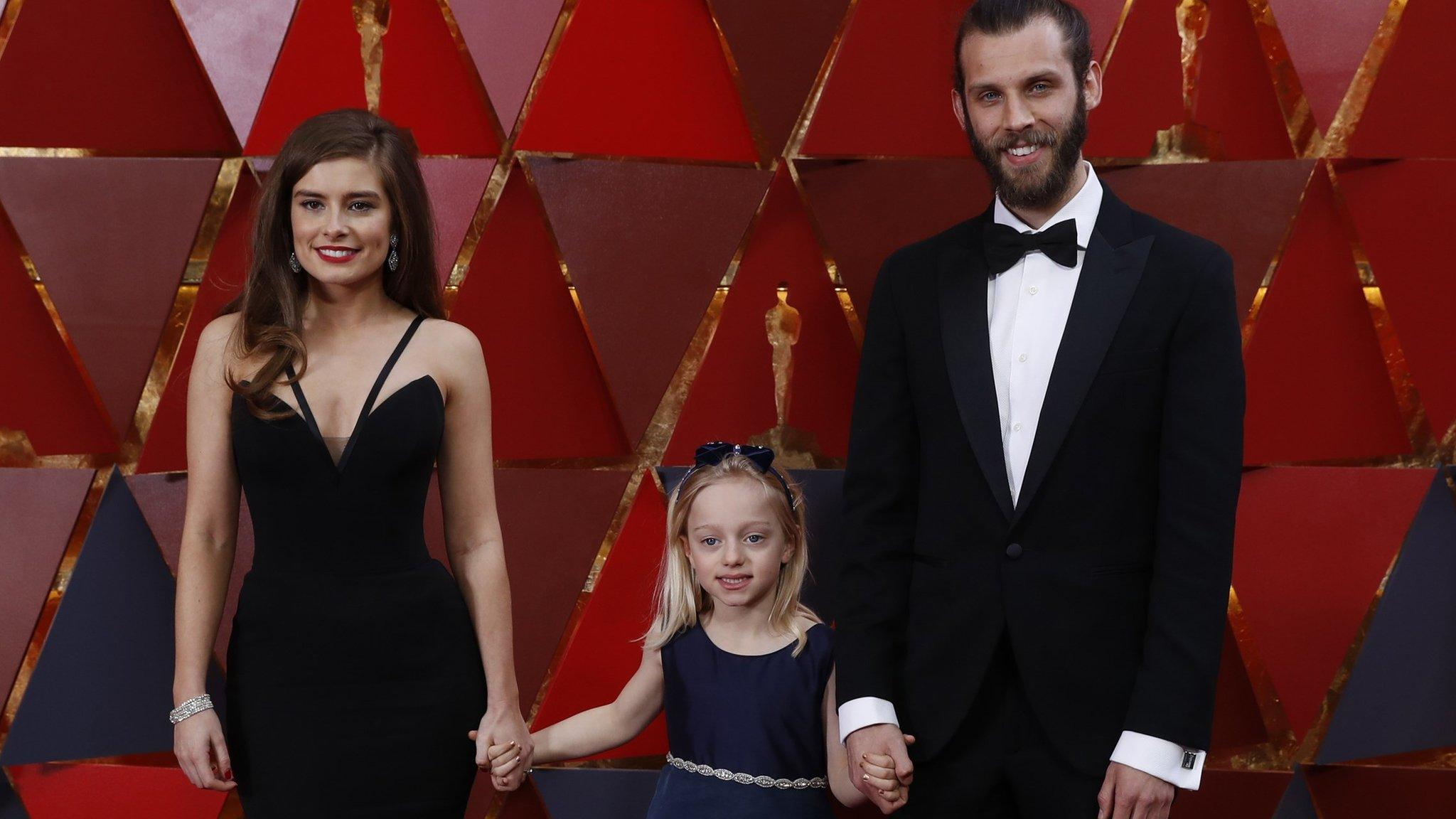
- Published5 March 2018
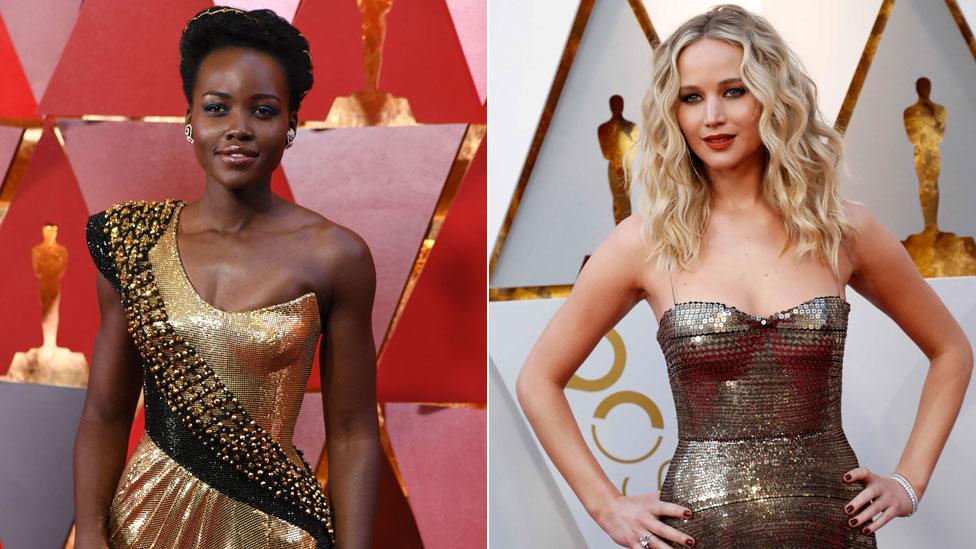
- Published5 March 2018
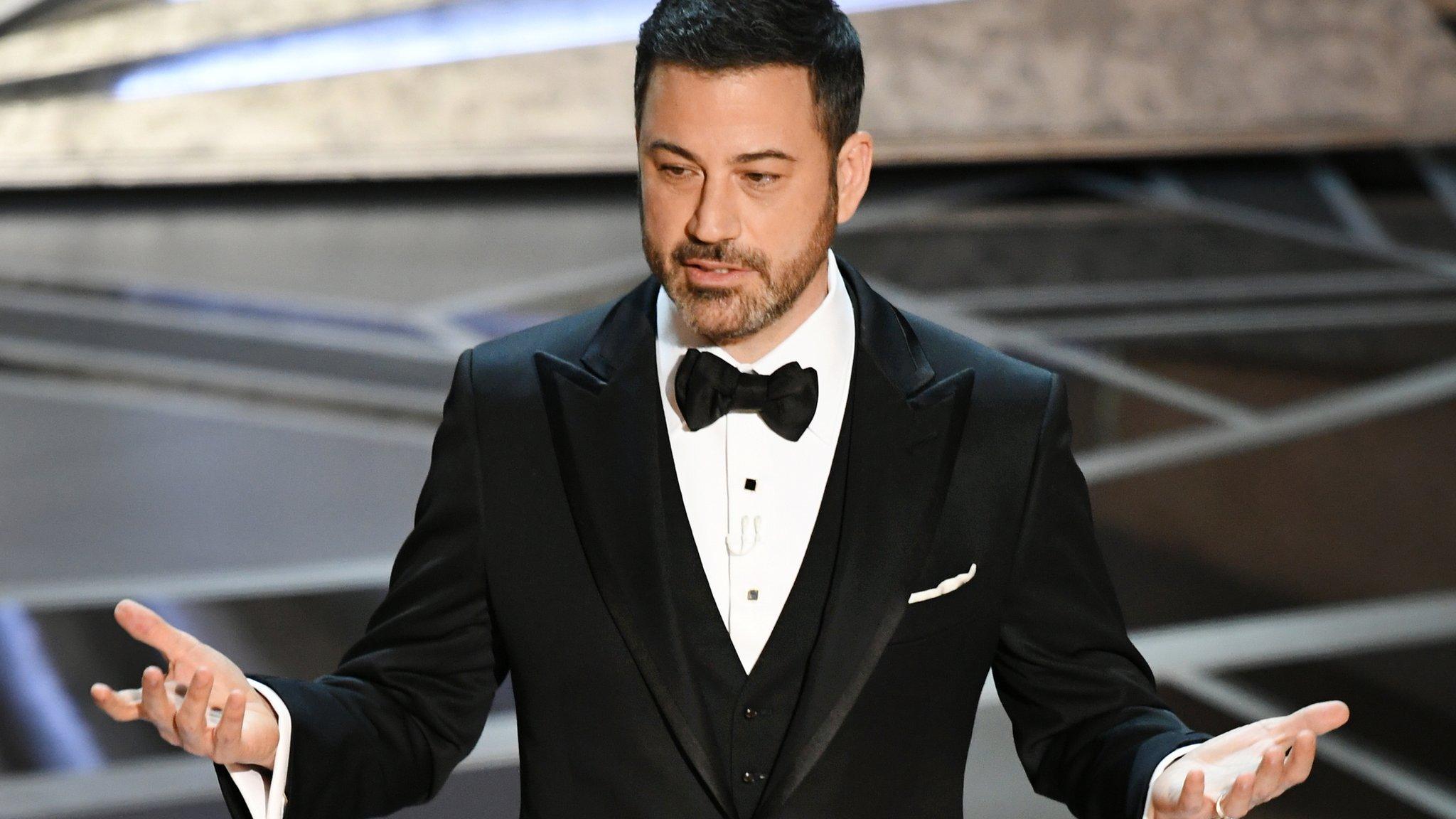
- Published5 March 2018
